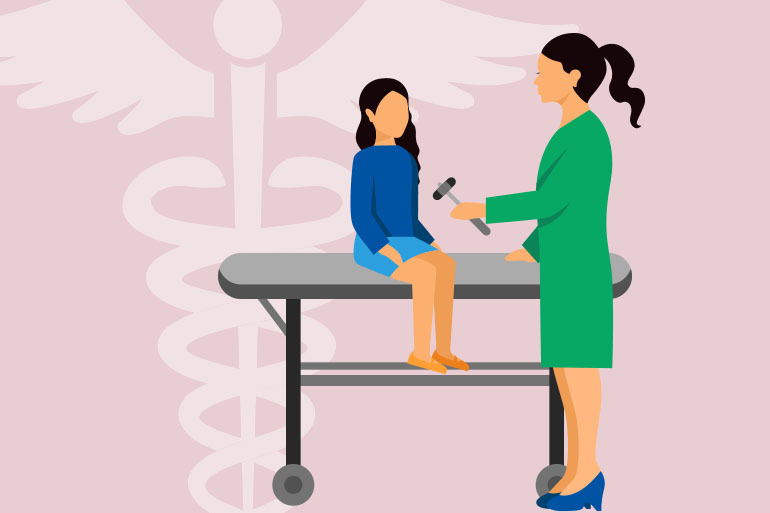
Efforts by Republican lawmakers to scale back Medicaid enrollment could undercut an aspect of the program that has widespread bipartisan appeal — covering more children, research published Tuesday in the journal Health Affairs suggests.
The study focuses on the impact of Medicaid’s “welcome-mat” effect — a term used to describe the spillover benefits kids get when Medicaid eligibility is extended to their parents.
Children were more likely to be enrolled in public health insurance programs — specifically Medicaid, which in some states is administered as an expansion of the federal-state Children’s Health Insurance Program — if their parents were also able to enroll, explained Julie Hudson, a senior economist at the federal Agency for Healthcare Research and Quality and the paper’s lead author.
Children were more likely to be enrolled in public health insurance programs — specifically Medicaid, which in some states is administered as an expansion of the federal-state Children’s Health Insurance Program — if their parents were also able to enroll, explained Julie Hudson, a senior economist at the federal Agency for Healthcare Research and Quality and the paper’s lead author.
The findings highlight an underlying tension and a key relationship — parents’ insurance status and that of their kids — as Congress moves in coming weeks to reauthorize CHIP, before its funding expires at month’s end.
“Children’s health policy doesn’t exist in a vacuum,” said Benjamin Sommers, an associate professor of health policy and economics at Harvard University’s public health school. Sommers was not an author on the paper, but he did provide feedback on a preliminary draft. “We can’t discuss covering kids without considering what other policies are affecting parents.”
Among the most controversial aspects of the stalled Republican efforts to revamp the Affordable Care Act were provisions to limit Medicaid, the joint federal-state health care program for low-income people. But even if that effort is not revived, congressional Republicans have said they will continue their push to cut back the program.
In addition, many states are seeking waivers that would let them add other requirements to Medicaid — demanding beneficiaries undergo drug-testing or meet work requirements, for instance. Those, many analysts say, would likely reduce enrollment.
Such efforts could affect children who are eligible for Medicaid coverage.
The paper examines data collected from 2013 to 2015 by the Census Bureau’s nationally representative American Community Survey. It tracked kids up to age 18 who, based on family income, should qualify for Medicaid.
Researchers concluded that the children who benefited most from the welcome-mat effect lived in states that opted to pursue the ACA’s Medicaid expansion, where an estimated 700,000 kids who would have previously been eligible for Medicaid but were not enrolled gained coverage because their parents did, too.
“There’s no doubt that it’s the combination effect; when parents find out they’re eligible, it brings in the kids,” said Tricia Brooks, a senior fellow at Georgetown University’s Center for Children and Families, who was unaffiliated with the study. “I don’t think parents intentionally choose not to enroll their children. … It’s going back to that lack of awareness, of understanding that children would be eligible on their own.”
To be fair, the study did not account for all CHIP programs or attempt to differentiate the various ways children could gain access to health coverage through Medicaid or CHIP.
Rather, noted Sommers, it highlights a broader pattern: “Public coverage for children … increased as the Affordable Care Act took effect.”
That gets at a more fundamental issue, many analysts suggested. The end goal of insuring kids — generally popular across the aisle — is difficult. The more controversial policy choices around adult coverage matter a great deal, too.
For instance, the Health Affairs study suggests that, had every state expanded Medicaid, 200,000 more kids would likely have gained coverage during the two-year period examined. And previous research has suggested that parents and children often have similar insurance statuses.
Brooks also pointed to simplified insurance applications, enhanced outreach and a larger push to enroll parents in health insurance, associated with the ACA broadly and the Medicaid expansion specifically. Those efforts, she said, all could have helped raise awareness about children’s eligibility for insurance as well.
“Children still are missed, and therefore direct outreach to families may be a really good thing, especially in those situations where parents are also eligible,” said Sara Rosenbaum, a health policy and law professor at George Washington University, who was not involved with the study. “It’s like added value. It’s a booster.”
Meanwhile, the White House has cut its budget for promoting private marketplace insurance, which some say would add to declines in adult coverage.
If those changes hit parents, the research suggests, the implications don’t stop there.
“The authors make a good case here that policies that are helping parents under the Affordable Care Act improve kids’ access — and moving the opposite way would affect their children negatively,” Sommers said.
This article was reprinted from kaiserhealthnews.org with permission from the Henry J. Kaiser Family Foundation. Kaiser Health News, an editorially independent news service, is a program of the Kaiser Family Foundation, a nonpartisan health care policy research organization unaffiliated with Kaiser Permanente.












